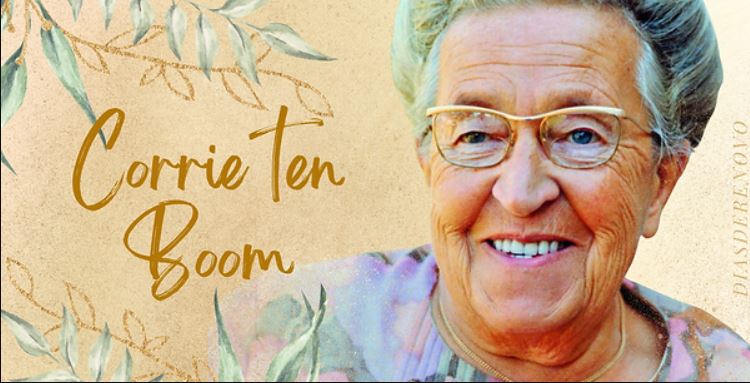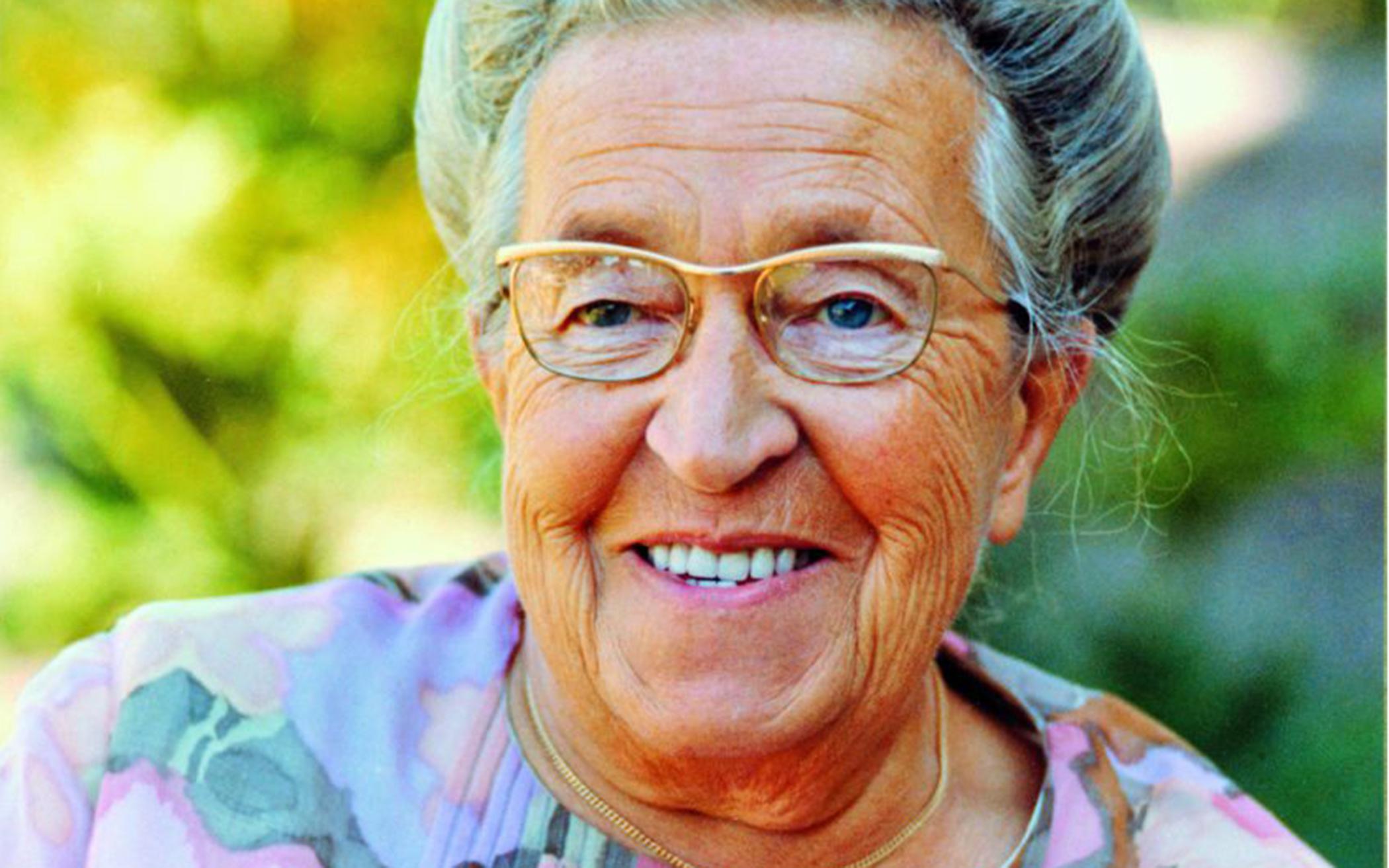
Cornelia Arnolda Johanna “Corrie” ten Boom is a treasured example of the power of forgiveness in the face of unspeakable evil.
The Dutch Christian worked as a watchmaker with her father Casper ten Boom and would work with her sister Betsie ten Boom and other family members to help Jews escape Nazi persecution during the Holocaust in World War II.
Corrie would later chronicle parts of her experience in the famous book, “The Hiding Place.”
Although bravery, sacrifice and unshakable faith in God marked Corrie’s life, perhaps most astonishing was her ability to forgive. Her story is also portrayed in the Movieguide® Award-winning movie RETURN TO THE HIDING PLACE.
In an article from 1972, Corrie recalled how she came face to face with one of the concentration camp guards where her sister died.
“It was in a church in Munich that I saw him, a balding heavyset man in a gray overcoat, a brown felt hat clutched between his hands. People were filing out of the basement room where I had just spoken, moving along the rows of wooden chairs to the door at the rear,” she wrote. “It was 1947 and I had come from Holland to defeated Germany with the message that God forgives.
“It was the truth they needed most to hear in that bitter, bombed-out land, and I gave them my favorite mental picture. Maybe because the sea is never far from a Hollander’s mind, I liked to think that that’s where forgiven sins were thrown,” she continued, adding: “‘When we confess our sins,’ I said, ‘God casts them into the deepest ocean, gone forever.’”

Corrie remembered that her audiences, often groups of German, left her talks in silence.
“The solemn faces stared back at me, not quite daring to believe. There were never questions after a talk in Germany in 1947. People stood up in silence, in silence collected their wraps, in silence left the room,” she explained. “And that’s when I saw him, working his way forward against the others. One moment I saw the overcoat and the brown hat; the next, a blue uniform and a visored cap with its skull and crossbones.
“It came back with a rush: the huge room with its harsh overhead lights, the pathetic pile of dresses and shoes in the center of the floor, the shame of walking naked past this man. I could see my sister’s frail form ahead of me, ribs sharp beneath the parchment skin. Betsie, how thin you were!” she continued. “Betsie and I had been arrested for concealing Jews in our home during the Nazi occupation of Holland; this man had been a guard at Ravensbrück concentration camp where we were sent.”
Corrie recalled her shock when a previous captor approached her and asked for her forgiveness.
“I remembered him and the leather crop swinging from his belt. It was the first time since my release that I had been face to face with one of my captors and my blood seemed to freeze,” she said. “‘You mentioned Ravensbrück in your talk,’ he was saying. ‘I was a guard in there.’ No, he did not remember me. ‘But since that time,’ he went on, ‘I have become a Christian. I know that God has forgiven me for the cruel things I did there, but I would like to hear it from your lips as well. Fräulein’–again the hand came out–’will you forgive me?’
“I stood there–I whose sins had every day to be forgiven–and could not. Betsie had died in that place–could he erase her slow terrible death simply for the asking?” she added. “It could not have been many seconds that he stood there, hand held out, but to me, it seemed hours as I wrestled with the most difficult thing I had ever had to do.
“For I had to do it–I knew that. The message that God forgives has a prior condition: that we forgive those who have injured us. ‘If you do not forgive men their trespasses,’ Jesus says, ‘neither will your Father in heaven forgive your trespasses.’”
Since the end of the war, Corrie had started a home in Holland for victims of Nazi brutality.
“Those who were able to forgive their former enemies were able also to return to the outside world and rebuild their lives, no matter what the physical scars. Those who nursed their bitterness remained invalids. It was as simple and as horrible as that,” she recalled of those in the home.
“Still I stood there with the coldness clutching my heart. But forgiveness is not an emotion–I knew that too. Forgiveness is an act of the will, and the will can function regardless of the temperature of the heart,” she wrote.
In her pain, Corrie turned to prayer.
“‘Jesus, help me!’ I prayed silently. ‘I can lift my hand. I can do that much. You supply the feeling,’” she said.

She recalled of the following interaction:
And so woodenly, mechanically, I thrust my hand into the one stretched out to me. And as I did, an incredible thing took place. The current started in my shoulder, raced down my arm, sprang into our joined hands. And then this healing warmth seemed to flood my whole being, bringing tears to my eyes.
“I forgive you, brother!” I cried. “With all my heart!”
For a long moment, we grasped each other’s hands, the former guard and the former prisoner. I had never known God’s love so intensely as I did then.
Corrie credits God for her ability to forgive in such circumstances.
“If there’s one thing I’ve learned at 80 years of age, it’s that I can’t store up good feelings and behavior–but only draw them fresh from God each day,” she said.
But Corrie revealed that trusting God meant trusting Him in all things. That meant trusting God to give her the power to forgive her Nazi captors and trust Him to provide for her family in their daily needs.

Leave a Reply